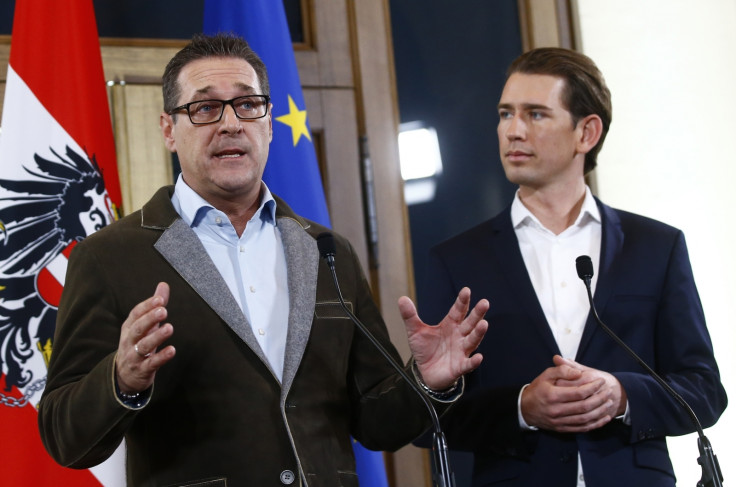Austria's conservative People's Party forms coalition government with far-right Freedom Party
Both parties campaigned on the need for tougher immigration controls, quick deportations of asylum-seekers and a crackdown on radical Islam.
Conservative and nationalist parties in Austria reached a deal on Friday to form a new coalition government that will shift the country to the right and make 31-year-old Sebastian Kurz Europe's youngest leader.
Kurz's conservative Austrian People's Party finished first in the country's Oct. 15 election. It then embarked on coalition talks with the right-wing Freedom Party, led by Heinz-Christian Strache.
The two leaders gave few details late Friday as they announced their agreement in Vienna, saying they would talk at greater length after presenting their plans to President Alexander Van der Bellen on Saturday. They took no questions from reporters.
Kurz, who will be the new chancellor, said the new government would work to reduce Austrians' tax burden, strengthen the economy and "above all, we want to ensure more security in our country, including by fighting illegal immigration."
Before the election, both parties campaigned on the need for tougher immigration controls, quick deportations of asylum-seekers whose requests are denied and a crackdown on radical Islam.
Neither leader addressed the new government's approach to European policy during their brief appearance. Austria will hold the 28-nation European Union's rotating presidency in the second half of next year.
Kurz has stressed the importance of a pro-European direction, while the Freedom Party traditionally has been strongly euroskeptic.
Kurz is foreign minister in the outgoing government under Chancellor Christian Kern, a center-left Social Democrat. His party has been the junior partner in that government.
Kurz said that Austrians had voted "for change in our country, and we want to ensure this change in the next five years." He said it also was important to ensure "a new political style in dealing with each other in Austria" after persistent bickering in the old government.

© Copyright IBTimes 2024. All rights reserved.






